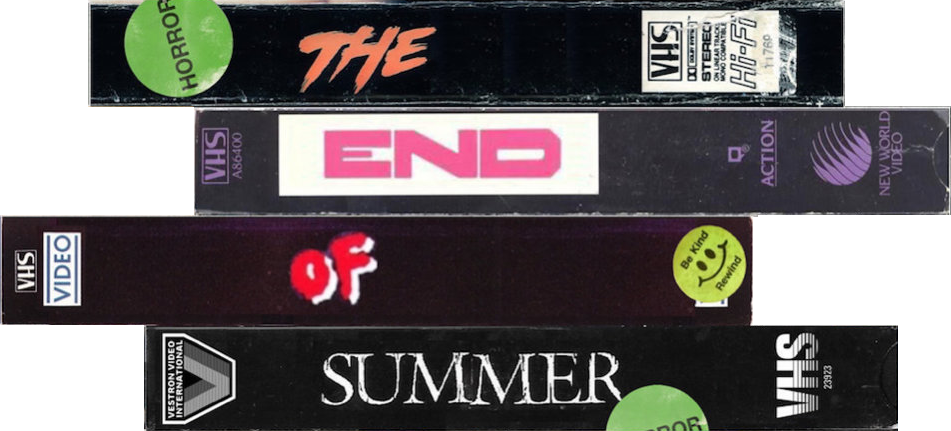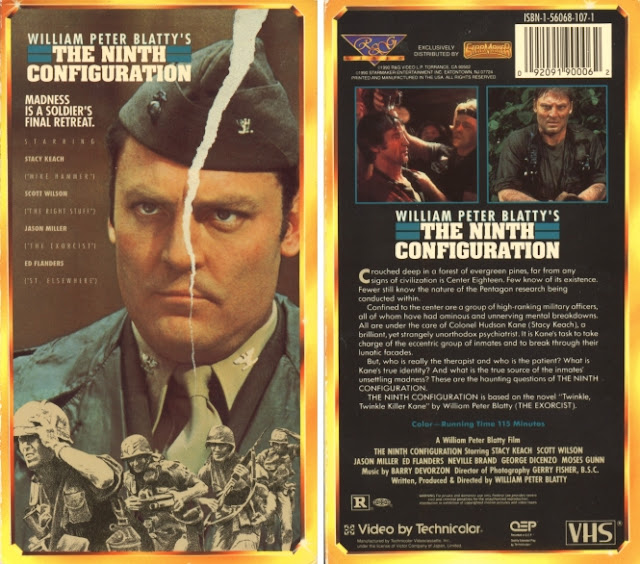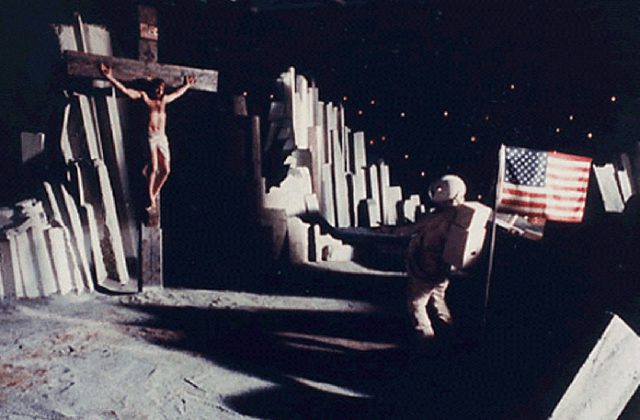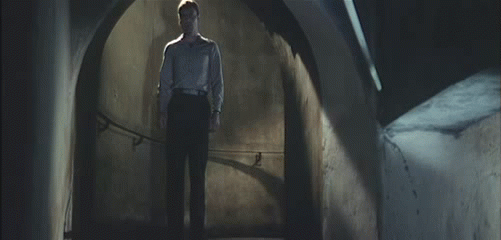"A good cop can't sleep because a piece of the puzzle is missing. A bad cop can't sleep because his guilty conscience won't let him."
Even to those who don't speak in film, Christopher Nolan, by now, must be a household name. His reformation of the
Batman series, mixed with the storm-taking
Inception, has proven he is a powerhouse. He is a man who has somehow mastered wowing both critics and audiences, reveling in their kind praise and their hard-earned dollars. His films are gorgeous, brooding, and filled with the kind of thought and reverence for genuine human emotion that many other filmmakers take for granted. If I were to tell you that his most unheralded film (perhaps even lesser known than his debut feature
Following), was his best, you would not believe me. You may even argue with me. But there's no arguing when I tell you that this sleepy remake of the 1997 Swedish film of the same name is, by far, my favorite of his films. And that's saying lot, considering the man is also responsible for
The Prestige and
Memento, along with the before-mentioned
Dark Knight trilogy (third chapter notwithstanding).
After busting onto the scene with his second film, the mind-busting, non-linear
Memento, Warner Bros. wanted to be in the Christopher Nolan business. With so many filmmakers of varying pedigree being assigned remakes of notable genre offerings during this time, Nolan signed on to direct (and perform an uncredited pass on the screenplay) of what would become
Insomnia, a story of an unsolved murder in Nightmute, Alaska, a Los Angeles robbery and homicide detective (Al Pacino) brought onto the case in order to keep him away from the internal affairs investigation currently looking into his department, that same detective's honorable partner (Martin Donovan), and a small-town investigator in awe of the famed detective's career (Hilary Swank). Causing all this bloody ruckus is a small-time novelist and all-around murderer (Robin Williams), whose shy and quiet manner hides something far worse. The case seems routine until the investigation begins, and layer after layer is peeled back, revealing that nearly every single one of our characters has a secret they are keeping from everyone else. While these secrets pertain to careers, loyalty, or their very freedoms, it all soon comes tumbling down, bringing everyone down with it.
With respect to an admittedly living legend,
Insomnia is Al Pacino's last great performance. His Will Dormer exists in a period of his career, following 1992's
Scent of a Woman where he won the Oscar for shouting all the time, in which he...still shouted all the time. "Hey, they must like it!" he must have thought at that time. After a while, however, the very dynamic and hand-gesture loving Pacino starts to disintegrate as his lack of sleep begins to creep up on him. He starts to loose his mind, hallucinate, throw furniture against the window to block out that awful impenetrable Alaskan light. Everyday mundane things like a oscillating desk fan or windshield wipers have the power to unsettle him. (We've all pulled all-nighters at some point - it's a wonder what a lack of sleep will do to the human mind.) His voice grows weary and weak. He becomes exhausted - to the point it sounds as if he's using his voice for the first time. (Count how many times a character asks him if he's getting any sleep.) It's one of the best examples of a character's methodical destruction, and we witness it steadily. Aiding this is the lack of clear timeline. We know for how long Will spends in Alaska (six days - without sleep), but we never get a clear sense of what time of day it is. This is established in the beginning when Dormer requests to pull the murder victim's boyfriend out of class to question him, and he's told it's actually ten o'clock...at night. Something as simple as not knowing what time it is - if it's day or night, early morning or nearing midnight - is enough to set the audience on edge and fuck with their equilibrium. So imagine what poor Dormer must be going through with no sleep, a guilty mind, and a murderer on the loose.
A purposeful choice made early on, though at what point I couldn't say, effort is made to imagine Will Dormer as a less confrontational character with whom to sympathize. For those who have seen the original Swedish film, you'll remember that Stellan Skarsgård's iteration of the character was certainly darker. Granted, Pacino isn't exactly the most noble of investigators - especially during his interrogation scenes - but Skarsgård nearly dared you to root for him. (Quick example: Al Pacino shoots a dead dog to catch a sample bullet from his gun; Stellan Skarsgård shoots a live one.) Pacino plays it right down the middle: bad enough to not entirely trust, but good enough to know he's the one you want to see come out on top. In the final act, where he bares his soul to a nearly perfect stranger, he is no longer his larger-than life persona. He is a small man, withered from guilt and lack of sleep, with his biggest task still in front of him.
Between this and
One Hour Photo, one thing is clear: Robin Williams is fucking amazing at playing a psycho. He was never a person for whom I much cared or had much respect. As a comedian, for which he was most famous, I found him painfully unfunny, so why should I have cared? But here, he is super duper creepy. With Walter Finch, Williams finds a way to offer a wide-eyed stare, hands folded, looking entirely innocent but out-of-his-mind guilty simultaneously. His performance is somewhat reminiscent of Kevin Spacey's John Doe from
Seven, but certainly not as operatic or over the top. Even as he explains, in bits and pieces, what really happened, you can see him working it around in his mind, as if he's also trying to figure out how the fuck it all led to this. Things had started off so promising for him and for the girl whom he thought liked him - how could she be like that? How could she treat him in such a way after he had consoled her, showered her with gifts, and loved her?
I only wanted to comfort her, hold her. I kissed her and... got a little exited. And then she started laughing at me. She didn't stop laughing. Did you ever have someone laugh at you, Will? When you're really vulnerable, laughing their ass off at you? Someone you thought respected you? Ever have that happen, Will? I just wanted to stop her laughing, that's all. I hit her. A couple of times, just to stop her. Let her know - a little respect... She's terrified, she's screaming her head off. I put my hand over her mouth. And then I get really scared, I mean, I'm scared shitless - more scared than I've ever been. And I'm more scared than her, and then... everything's clear. There's no turning back. After that, I was calm. Real calm.
Williams plays insane with sadness, yet not regret, and with an evil genius' mastermind. His late-night phone calls ("Can't sleep, Will?") honest-to-gosh sound like one old friend calling another. His voice is calm and without confrontation - at times he sounds damn near sympathetic. For a performer who reveled (and revels) in over-the-top antics and cartoonery, Walter Finch is the anti-Williams. He is calm, reserved, and calculating. And he's fucking dangerous.
The supporting cast are mostly great, the only side-step being Hilary Swank as Ellie Burr. Swank is normally a great actress, but she's a bit too Family-Von Trapp-ish here, filled with gee-gosh-gollies and doe-eyed infatuation. Though she's the one who eventually ties everything together, and obviously you're supposed to mentally steer her away from uncovering Dormer's indiscretions as an investigator, eventually you want her to just stfu. Each probing question can become maddening after a while; whether it's the performance or the character, I can't honestly say, but the effect is all the same.
Really, each minor character is refreshingly allowed to have actual personality.
Nicky Katt's Fred Duggar obviously fancies himself as the big fish investigator of his small town, and doesn't much care for guys from L.A. coming in to augment his investigation. A slight against his intelligence and capabilities as an officer, he takes it personally and acts (understandably) a little bull-headed...although his two-thumbs joke is aces. Genre favorite Katharine Isabelle (
Freddy vs. Jason, the
Gingersnaps trilogy) plays the requisite hot bitch - and a reminder that desensitized youth can be found anywhere...even in the smallest town. Maura Tierney, a relatively unknown and uncelebrated actress, does fine work against Pacino, delivering perhaps the most fitting line in the entire film: "There are two kinds of people in Alaska: Those who were born here and those who come here to escape something else. I wasn't born here." Such subtle dialogue provides a previously unseen layer to her character, all the while providing nothing at all.
Every film in Nolan's career has contained an unrelenting darkness. The filmmaker has a natural interest in the darkness of human beings. From
Following to
The Dark Knight Rises, even when he's having fun, he likes to snap us back to reality and tell us point blank, "People may be ultimately good, but they are selfish and dangerous pricks leading up to it." And
Insomnia is, by far, his darkest film - not even as far as the plot goes, but how he imagines it for us, and how he and DP Wally Pfister designed its look. How could Alaska, in the midst of days-straight sunlight, feel so fucking dank and dark? How could a genuinely beautiful place
feel so depressing, morbid, and lonely?
A small dose of dark comedy helps break up the mounting dread, even with the surrounding dark circumstances. My favorite: Dormer breaks into Finch's apartment soaking wet, and Finch, over his own answering machine, tells Dormer there are clean towels in the bathroom. Dormer looks at the towel already clenched in his hand and offers this look of, "Are you fucking kidding?" It's just one example out of several where comedy comes out of nowhere and we find it surprisingly welcome.
The script is well constructed and multi-layered; its beauty is most obvious as we witness Dormer and Finch play cat and mouse games with each other. They each have a secret about which the other knows, and they, in person, pretend to come to an agreement on how to push forward that would benefit them both. But then one pulls a "wild card," as Finch calls it, surprising the other and watching him squirm with the newest turn in their twisted relationship. On more than one occasion Finch sends Dormer grasping at the nugget of information he has allowed him to have, even if it was a purposeful misdirection.
It goes without saying that
Insomnia looks gorgeous, but having already mentioned Pfister, that should be no surprise. This film, the second of what would be many more collaborations between director and DP, is actually their most expressive. Beautiful though they may be, the look of
The Prestige and the
Dark Knight trilogy can sometimes get lost behind their London streets or tall cityscapes. But in Alaska, there's nowhere to hide. It becomes as much a character in
Insomnia as Gotham did in
The Dark Knight.
Being a fan of film music (but not quite in the adept ways as some of my musically-inclined colleagues), I imagine more people would recognize the pounding and stirring score Hans Zimmer brought to life in Nolan's
Dark Night trilogy if they had already been familiar with
Insomnia. Because composer David Julyan was already kinda doing it. Though he is a composer more comfortable using long, uninterrupted tones rather than full-on melodies, there is no denying the influence his music had on Zimmer's take on Batman. I have no idea if Nolan shepherded this desire for Batman's theme, or if Zimmer took it upon himself to study Nolan's previous films, but I defy you to listen to both films' scores during the sweeping, helicopter shots of
Insomnia's landscape and
Batman Begins' Iceland mountains and attempt tell them apart. You might falter.
Nolan just might be one of the first filmmakers to be featured here in
Unsung who is arguably at the beginning of his career. With half-a-dozen films behind him already, he's a young and vibrant guy who shows no signs of slowing down. His name is a celebrated one in the film community and with your everyday movie-goer, and announcements of his new projects are met with immediate speculation. "What will it be about? Where will it be set? Will it star Michael Caine?" (Yes, it will.) His newest project, still in the casting process, is
Interstellar - and appropriate for Nolan, no one knows shit about it (though it does star Michael Caine). As his career surely progresses, Nolan will become further removed from
Insomnia. Though it feels somewhat like this already, eventually
Insomnia will become nothing more than a bit of trivia one movie geek tells to another. "Did you know he once made a movie with Al Pacino?" It's sad in a way, but also kind of nice.
Insomnia will always be one of my favorite secrets.






























